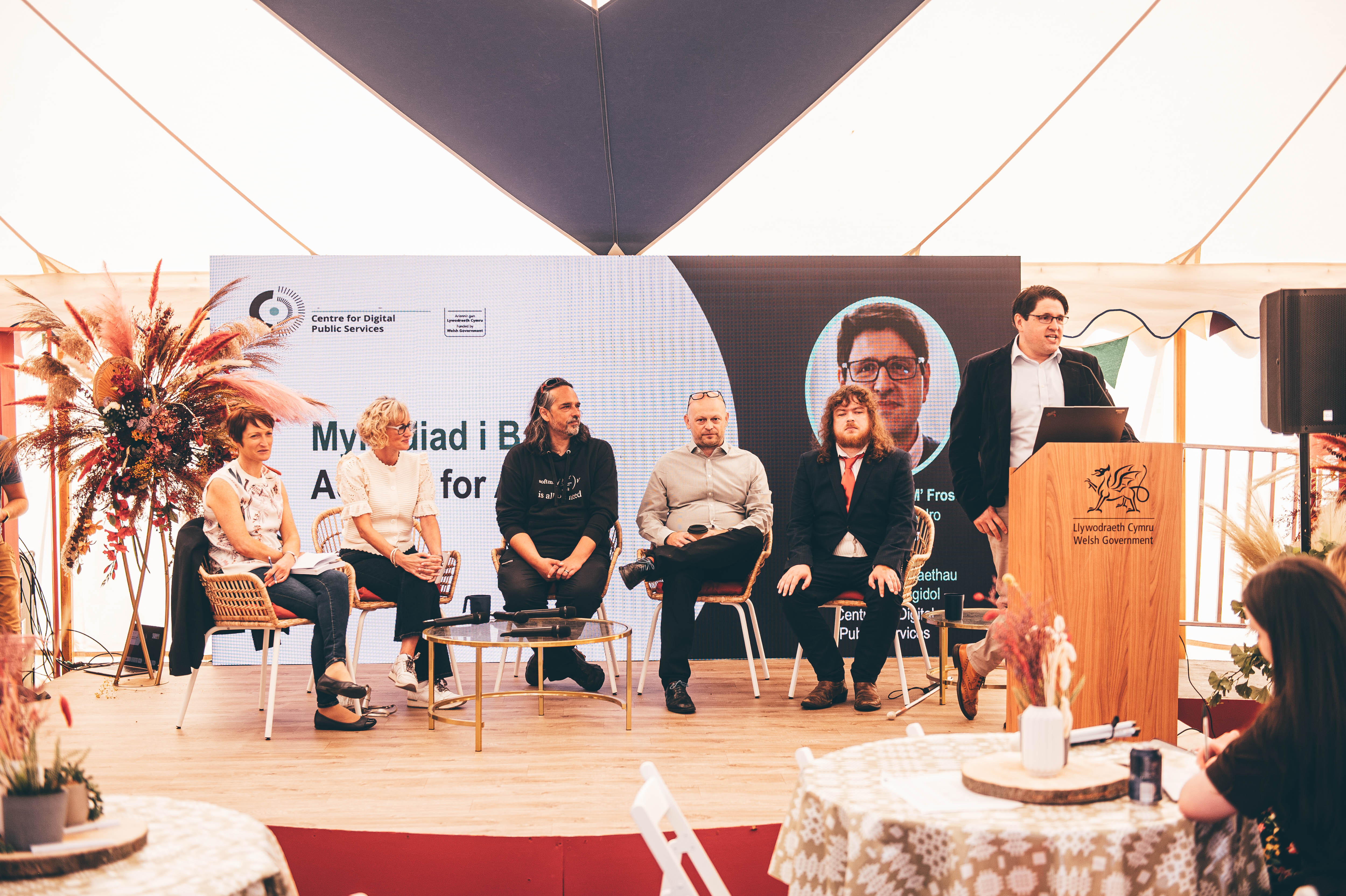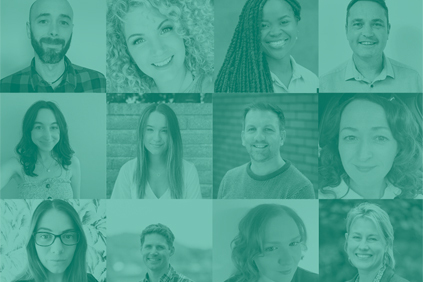I was excited to return to the National Eisteddfod in Wrexham this year.
We've been doing so much work in the past year that we went with an important message: accessibility isn’t optional – it’s essential.
Under the theme 'Accessibility matters: better public services for everyone', we launched a book ‘Access for All’ and brought together a powerful mix of voices to explore how inclusive design, plain language, and assistive technologies can improve public services not just for some, but for all.
Our event was held in the Welsh Government's tent and the panel featured leaders from across public life, each bringing unique perspectives and deep experience in making services more accessible and inclusive:
- Jeremy Evas, Head of Cymraeg 2050 at the Welsh Government, chaired the session, guiding a conversation that challenged, informed, and inspired
- Dr John-Mark Frost, our Interim Chair and a senior leader at the BBC, who brought a strategic lens to digital service transformation
- Rob Williams, Digital Inclusion Officer at Vision Support, shared real-world insights from working with people with sight loss across northeast Wales
- Efa Gruffudd Jones, the Welsh Language Commissioner, highlighted how language accessibility plays a crucial role in service delivery, especially for Welsh speakers
- Rhian Bowen Davies, Older People’s Commissioner, spoke on the needs of ageing communities and how we must design services that work across generations
- Stefano Ghazzali, technology and system’s advocate at Bangor University, offered us a glimpse into how cutting-edge technology is helping bridge the gaps with access
My reflections
Our panel event was a powerful reminder of how far we’ve come and how much further we can go together.
One of the most striking aspects of the day was the breadth of support we received across the sector. The backing of not just one, but three commissioners (the Future Generations Commissioner, the Welsh Language Commissioner, and the Older People’s Commissioner) was both humbling and affirming.
Their presence and contributions made clear that accessibility isn’t a fringe issue or a box-ticking exercise. It sits at the heart of so many of our national priorities: equality, sustainability, cultural preservation, digital inclusion, and human rights.
Their support underscores a vital truth: accessible and inclusive design cuts across every area of policy and ambition in Wales. Whether it’s creating services that older people can use confidently, making sure every Welsh speaker can access their rights in their language, or considering the long-term impact of our digital choices on future generations, accessibility is the thread that connects it all. I’m truly grateful to each of the commissioners for lending their voices and vision to our event.

Another personal highlight was the incredible range of leaders, thinkers, and doers who joined us – not only on the panel, but in the audience and around the Maes. Having so many people in the room who have the influence and the insight to drive meaningful change was a real privilege. These are the people who turn words into action and strategy into outcomes.
A great moment was chatting with Mark Drakeford, former First Minister of Wales. We spoke about the book, and I was struck by how engaged and enthusiastic he was to read it. His curiosity and encouragement were a real boost, and a reminder of how vital it is to keep connecting people to the “why” behind what we do. Accessibility isn’t about abstract policy but it’s about real people, real stories, and real lives improved through better service design.

We have a saying in CDPS ‘how can we squeeze the juice out of this lemon?’, and we really lived that ethos in Wrexham by maximising every opportunity. While the event was a celebration of what we’ve done and a call to action for what comes next, it was also a chance to listen. Our team used the event to conduct user research, engaging directly with people from all walks of life to hear how they experience public services, what’s working, and what still needs to change.
This is what makes CDPS unique. We don’t just talk about people-centred design… we practice it. We listen, we iterate, we improve. It was inspiring to see that work happening live at the Eisteddfod, woven seamlessly into the fabric of the event.

As I look ahead, I carry with me the energy and insights from the day. The conversations we had, the support we received, and the stories we heard all serve as powerful reminders of why accessibility matters, not just in theory, but in practice.
Inclusive public services are not a nice-to-have; they are a fundamental right. And the more we embrace that truth, from government to grassroots, the more resilient, just, and human our services will become.
So, thank you to everyone who joined us in Wrexham, and to everyone who continues to champion accessibility in all its forms. Let’s keep going. Let’s keep listening. And let’s keep building better, together.
A free, fully accessible e-book version is available on Lulu.
